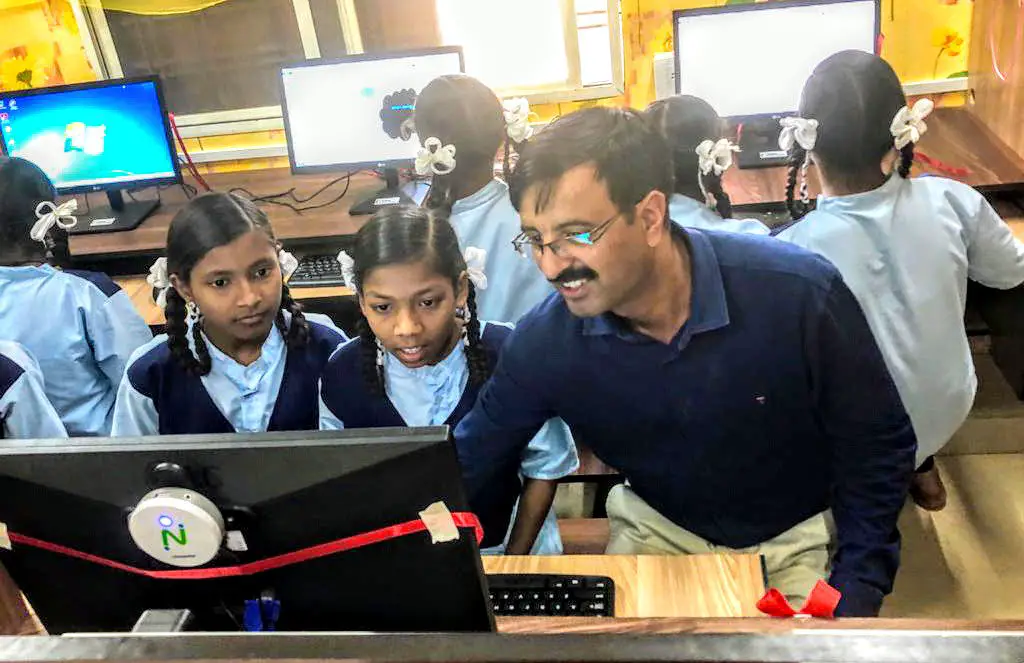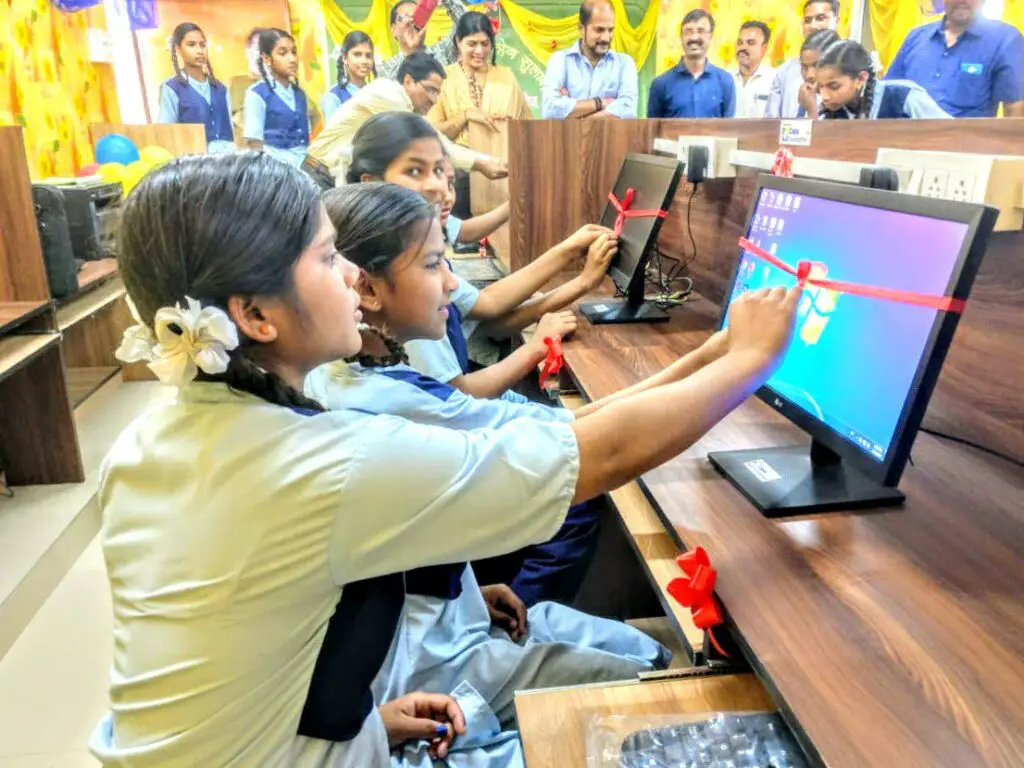- Developing Basic Digital Literacy: Early exposure helps children become comfortable with technology. Basic skills such as using a mouse, keyboard, and touch screen can build a foundation for more complex tasks later on.
- Enhancing Cognitive Skills: Interactive educational software can support cognitive development. Programs designed for young learners often incorporate games and activities that reinforce skills like problem-solving, pattern recognition, and logical thinking.
- Supporting Literacy and Numeracy: Many educational apps and programs focus on reading, writing, and math. They can provide personalized learning experiences and immediate feedback, helping children grasp fundamental concepts in a fun, engaging way.
- Encouraging Creativity: Computers offer tools for creative expression, such as drawing programs, storytelling apps, and multimedia projects. These can foster creativity and self-expression.
- Promoting Engagement: Well-designed educational games and activities can captivate young learners’ attention and make learning more enjoyable. This can be particularly effective for maintaining engagement with challenging subjects.
- Facilitating Differentiated Instruction: Computers can help cater to diverse learning needs by offering individualized learning experiences. Educational software can adapt to a child’s skill level, providing appropriate challenges and support.
- Building Early Research Skills: Learning how to use search engines and educational resources can introduce children to basic research skills. This can help them learn how to find information and develop an understanding of how to use it responsibly.
- Fostering Collaborative Skills: Many educational programs and games encourage group work and collaboration, helping children develop social skills and teamwork.
However, it’s important to balance screen time with other activities. Overuse of computers can lead to issues like reduced physical activity, less face-to-face social interaction, and potential negative impacts on vision and posture. Teachers and parents should ensure that computer use is integrated thoughtfully into a broader, balanced curriculum that includes physical activity, social interaction, and hands-on learning experiences.
Computer literacy can be highly effective for learners, and its importance extends beyond just basic skills. Here’s why knowing computer literacy is beneficial:

- Foundational Skills for Future Learning: Early computer literacy provides a foundation for future technological skills. As students progress through their education, they will encounter more complex software and digital tools. A solid understanding of basic computer skills can make it easier for them to adapt to new technologies.
- Enhancing Academic Performance: Many academic subjects use digital tools and resources. Familiarity with computers can help students efficiently use educational software, conduct research online, and create digital presentations, thereby enhancing their learning experience and performance.
- Improving Problem-Solving Skills: Computers often involve problem-solving, whether it’s troubleshooting technical issues or using software for specific tasks. Developing these skills can improve a learner’s ability to approach problems analytically and creatively.
- Preparing for the Workforce: Digital literacy is increasingly a prerequisite for many jobs. Early exposure to computer skills helps prepare students for future careers, making them more competitive in the job market.
- Encouraging Digital Citizenship: Learning how to use computers responsibly includes understanding online safety, privacy, and etiquette. Early education in digital citizenship helps students navigate the online world safely and ethically.
- Fostering Independence: Computer literacy enables students to access a wealth of information and resources independently. This can enhance their ability to learn on their own and develop research and inquiry skills.
- Supporting Differentiated Learning: Computers can offer personalized learning experiences. Educational software can adapt to individual learning paces and styles, providing customized support and feedback.
- Boosting Creativity and Innovation: Digital tools can inspire creativity. Students can create multimedia projects, explore digital art, and engage with interactive content that encourages innovative thinking.
- Building Confidence: As students become more proficient with computers, their confidence in using technology grows. This confidence can extend to other areas of their academic and personal lives.
While computer literacy is beneficial, it’s important to ensure a balanced approach. It should complement traditional learning methods and activities, rather than replace them. Combining computer-based learning with hands-on, experiential learning ensures a well-rounded educational experience.
having a computer lab in schools can be highly effective, provided it is well-integrated into the educational process. Here are several reasons why computer labs are beneficial:

- Access to Technology: Computer labs provide students with access to computers and software that might not be available in every classroom or at home. This ensures that all students have equal opportunities to use digital tools.
- Focused Learning Environment: A dedicated space for computer use helps minimize distractions and allows students to focus on tasks that require technology, such as research, digital projects, and coding.
- Support for Digital Literacy: Computer labs can be instrumental in teaching and reinforcing digital literacy skills. Students can learn how to use various software programs, conduct online research, and practice safe and responsible internet use.
- Facilitation of Computer-Based Projects: Many subjects and projects require computer use. Having a lab allows students to work on multimedia presentations, create digital content, and collaborate on technology-based assignments.
- Enhanced Learning Opportunities: Computer labs can provide access to a variety of educational resources and software that support differentiated learning. Students can engage with interactive simulations, educational games, and other tools that enhance their understanding of complex concepts.
- Professional Development for Teachers: A computer lab often includes resources that support teacher training and development. Educators can explore new teaching technologies and integrate digital tools into their instruction more effectively.
- Preparation for Future Careers: Familiarity with computer technology and software prepares students for future academic and career pursuits. Exposure to different applications and digital skills in a computer lab can be valuable for career readiness.
- Encouraging Collaboration: Many computer lab activities encourage teamwork and collaboration. Students can work together on projects, share resources, and engage in group problem-solving activities.
- Support for Differentiated Instruction: Computer labs allow for personalized learning experiences. Educational software and online resources can be tailored to individual learning needs, helping to address diverse student requirements.
- Safe Online Environment: A computer lab can provide a controlled environment where students can learn about internet safety and digital citizenship under the guidance of a teacher, reducing the risk of exposure to inappropriate content.
However, to maximize the effectiveness of a computer lab, schools should consider the following:
- Integration into Curriculum: The computer lab should be used as an integral part of the curriculum, with activities and assignments designed to complement and enhance classroom learning.
- Regular Maintenance and Updates: Computers and software should be regularly maintained and updated to ensure they are functioning properly and provide the latest features and security.
- Teacher Training: Educators should be trained to use the technology effectively and integrate it into their teaching practices.
- Balanced Use: Ensure that computer lab time is balanced with other forms of learning, including hands-on and interactive activities that don’t involve screens.
Overall, a well-equipped and thoughtfully utilized computer lab can significantly enhance educational experiences and outcomes for students.